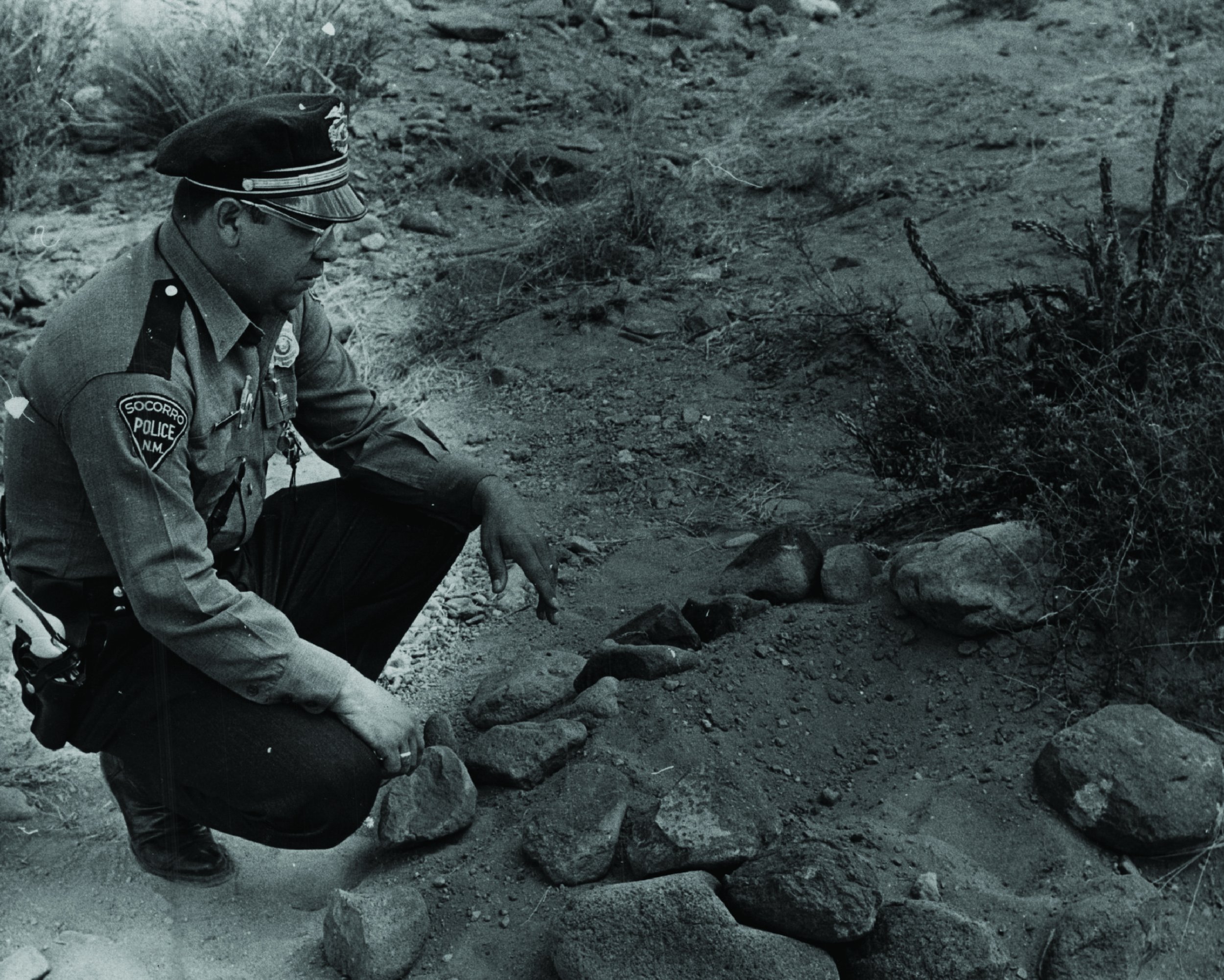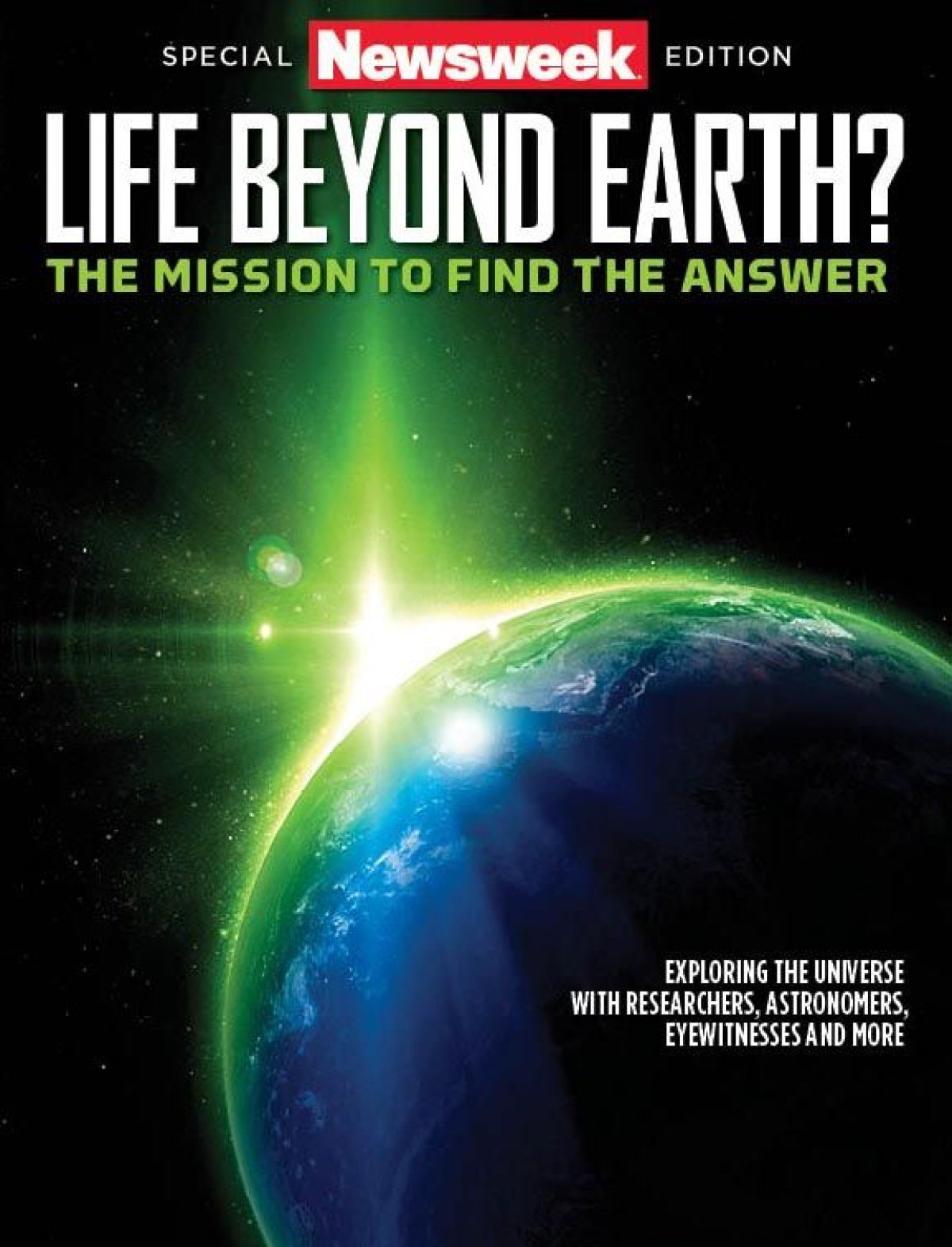
This article, along with others exploring the possibilities of alien life and other mysteries hidden beyond the stars, is featured in Newsweek's Special Edition: Life Beyond Earth? The Mission to Find the Answer.
In December 1969, the United States government called for the end of Project Blue Book, its 22-year investigation into unidentified airborne phenomena. Overnight, the authorities' official position changed from one of indulgent public curiosity to absolute public disinterest. "The Air Force was the head agency during Project Blue Book, where they went out into the field and talked to witnesses, essentially trying to figure out what was going on," explains John Greenewald, founder of The Black Vault, an Internet-based resource that has compiled more than 1.4 million declassified government documents. "After 1969, it was the United States Air Force that said, 'no government agency including our own has any interest in this phenomenon.'" But thanks to the dogged effort of Greenewald and other UFO researchers wielding Freedom of Information Act (FOIA) requests, anyone with an Internet connection and an open mind can deduce the government isn't quite as apathetic toward UFOs as it claims.
One curious item indicative of the cat-and-mouse game Greenewald feels the government plays with UFO researchers was an entry in an Air Force training manual discovered through a FOIA request. "I discovered, about eight to 10 years ago now, an Air Force regulation, Air Force Instruction 10-206," Greenewald says. "It deals with what to do if pilots see something strange in the sky and how they have to report it. The rule was a short list of things to look for—for example if they saw a missile streak across the sky, that was outlined as something they would need to report. On this very short list was the entry, 'Unidentified Flying Objects.' Obviously we're talking about 30 or more years after their investigation was stopped."
The regulation seems odd enough on its own, but the rest of Greenewald's story seems to give credence to his and other investigators' sneaking suspicion that something is amiss with how the government reports its relationship to UFOs. "I've worked Air Force Instruction 10-206 into a couple of documentaries I did for History Channel and National Geographic Channel, but there wasn't a lot of attention paid to it until a few years ago—the Huffington Post did an article about myself and The Black Vault," he says. "I told the reporter the Air Force doesn't have an interest in this topic anymore, and yet here's a very recent manual that references UFOs."
When the reporter followed up on the story and contacted the Pentagon for a response, officials reacted in a manner UFO researchers have grown accustomed to expect from the government—they stonewalled him. But the Pentagon's silence didn't necessarily indicate inaction. Greenewald later received a call from the reporter, who had shocking news. "He went online to download the instruction directly from the Air Force, and it didn't have mention of UFOs anymore. Chapter Five, in which Instruction 10-206 could be found, had been revised. UFOs were completely omitted. Now the section had to do with hurricanes."
Incredulous, Greenewald wanted to check for himself. "I thought when the reporter said all this via the telephone that maybe he was mistaken, that he clicked on the wrong instruction because these manuals can get very confusing. I thought, 'Once I get home I'll take a look and steer him in the right direction, never thinking that the United States Air Force would completely rewrite this instruction. I was very surprised to see that they changed it 48 to 72 hours after the Huffington Post called the Pentagon, which is all documented."
In light of the fact that FOIA requests can turn up all kinds of buried treasure for our government's assassination tactics, questionable wartime practices and everything in between, Greenewald's original question is still a nuisance even to the skeptical. Why, if the government has no official interest in explaining unexplained phenomena, are they so adamantly hiding the last half-century of documentation to that effect? The answer may be an earth-shattering revelation that changes humanity's understanding of its place in the universe. Or it may be as mundane as shedding some new light on the bureaucratic systems used to file reports. Either way, Greenewald and his cohorts will keep looking.
This article, written by James Ellis, Senior Editor, was excerpted from Newsweek's Special Edition: Life Beyond Earth? The Mission to Find the Answer. For more on the possibility of alien life and potential answers pick up a copy today.

Uncommon Knowledge
Newsweek is committed to challenging conventional wisdom and finding connections in the search for common ground.
Newsweek is committed to challenging conventional wisdom and finding connections in the search for common ground.





